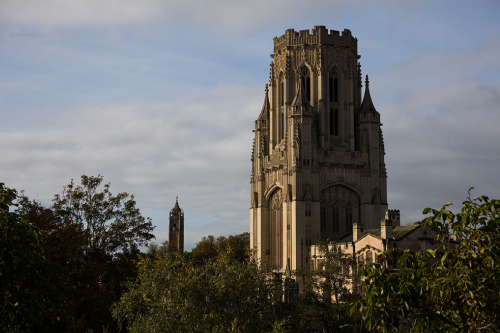Since it launched in 2016 more than 50 students who could not otherwise have gone to University have been able to study thanks to the Sanctuary Scholarship.
Scholars get degree funding, pastoral care, careers advice and free sports passes. Scholars have joined the scheme from Syria, Pakistan, Sri Lanka and Iran, among others.
Thanks to the University of Bristol’s generous alumni community, philanthropic funding to the Sanctuary Scholarships will double to at least £100,000 per year, making space for three* more scholars.
The University is anticipating an increase in applications over the coming year, precipitated by more natural disasters and events like the Taliban takeover of Afghanistan.
Professor Judith Squires, Provost and Deputy Vice Chancellor, said: “We know the power of education to transform lives, particularly for those who lack the means to go to university. Record numbers are currently displaced around the world, which means organisations must do more than ever to help those in need.
“Many asylum seekers and refugees have huge potential but simply do not have the means to seek education.
“We are hugely proud to be expanding the Sanctuary Scholarship, just weeks after our Black Bristol Scholarship Programme launched in earnest.”
Accessing education is difficult for asylum seekers and refugees. Asylum-seeking students are not permitted to work, cannot access maintenance or tuition loans and receive £37.37 per week to support themselves. Those with refugee status must rebuild their lives in unfamiliar countries, often with limited resources and support networks.
‘My life totally changed that day’
Taina Maneus came to the UK from Haiti in 2014, aged 16. She remembers growing up around endemic gang violence, corruption and political instability.
She “cried with joy” when she learnt her application to the scholarship was successful.
“My life totally changed that day,” Taina recalls. “Before that – growing up in Haiti then being a refugee in care in the UK – I had no control over my life. I felt sub-human, like I was living outside of society.
“With the scholarship I could finally decide how to live my life – I could finally see a future.”
Taina began a degree in Law and was immediately taken by “beautiful” Bristol and the support the University provided.
She is now studying for a masters in Law at the University of York. Afterwards she hopes to become a lawyer, perhaps specializing in financial crimes, before helping fellow Haitians to access education.
“I’m so grateful to the University and everyone who makes the scholarship possible – it really did change my life,” she said.
To find out more about the scholarship and to apply to join next year’s cohort follow this link.
